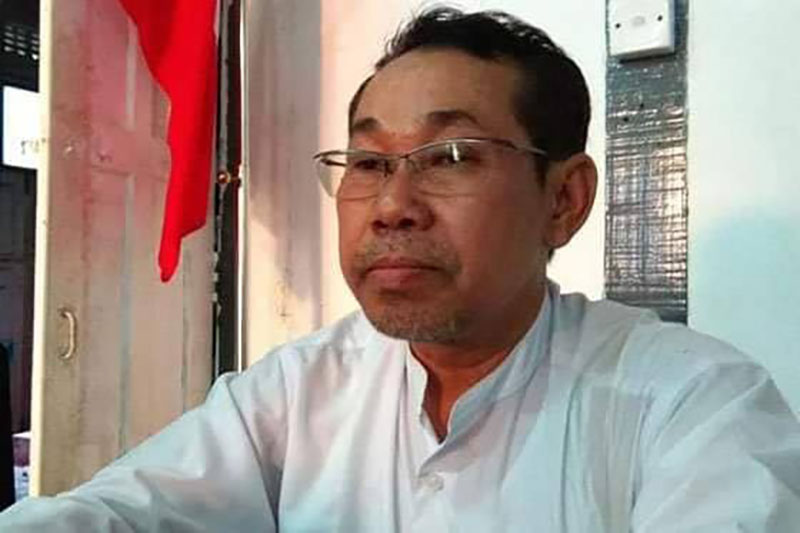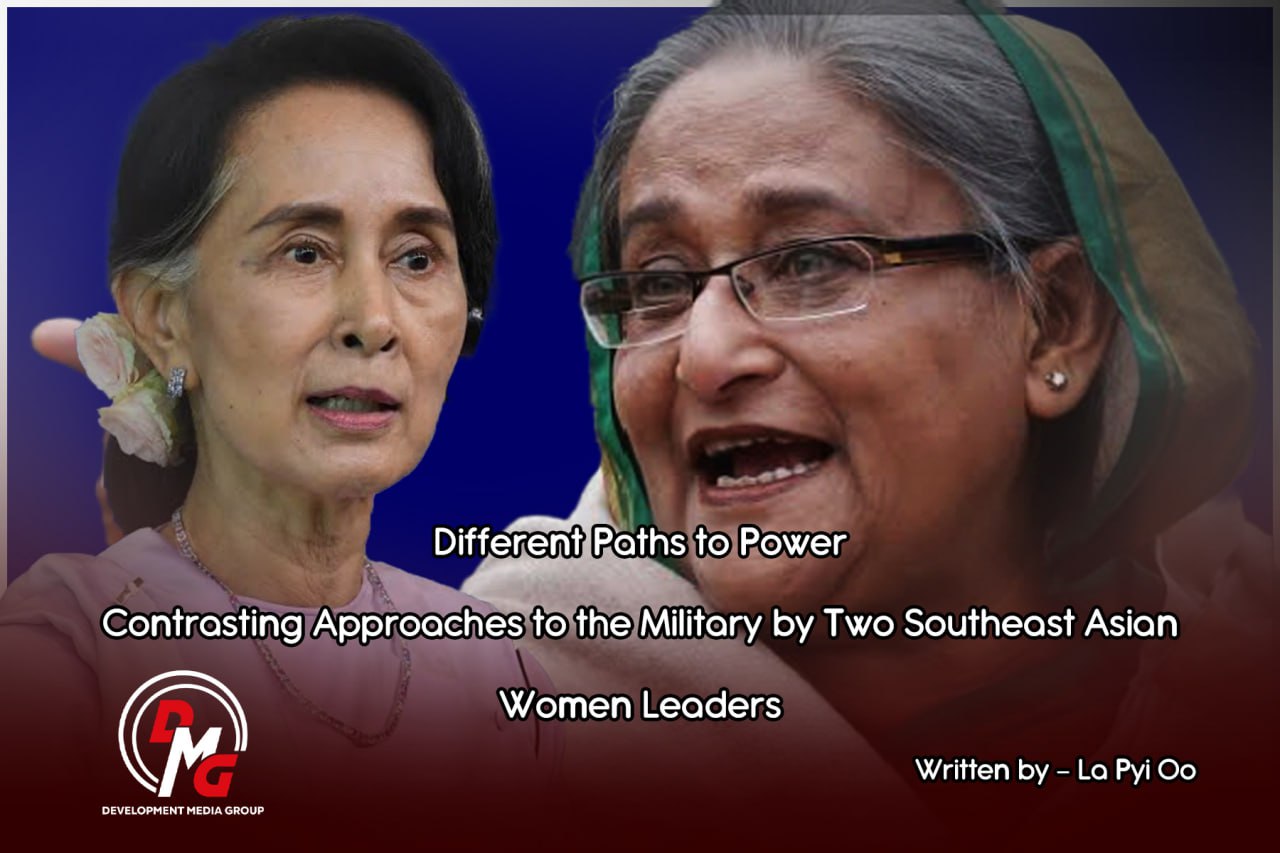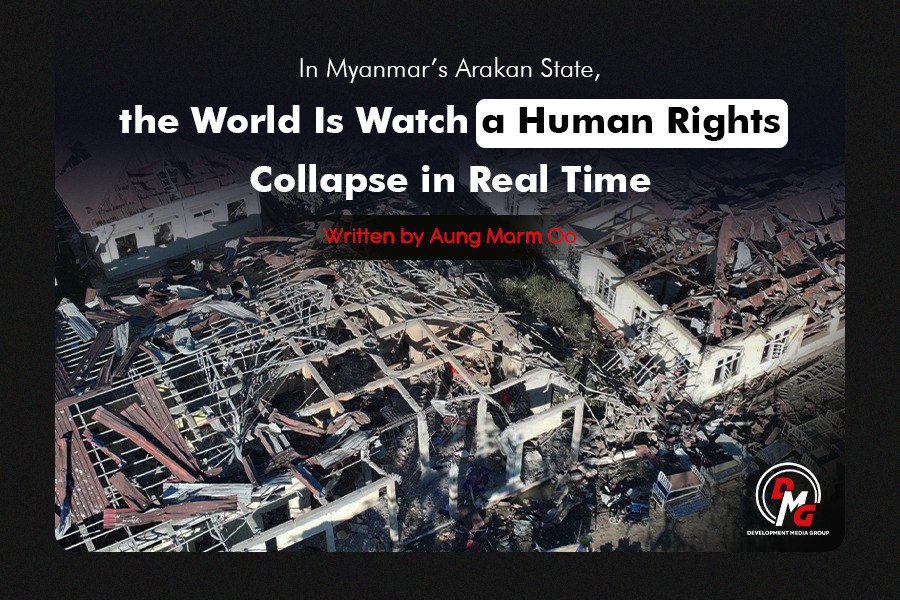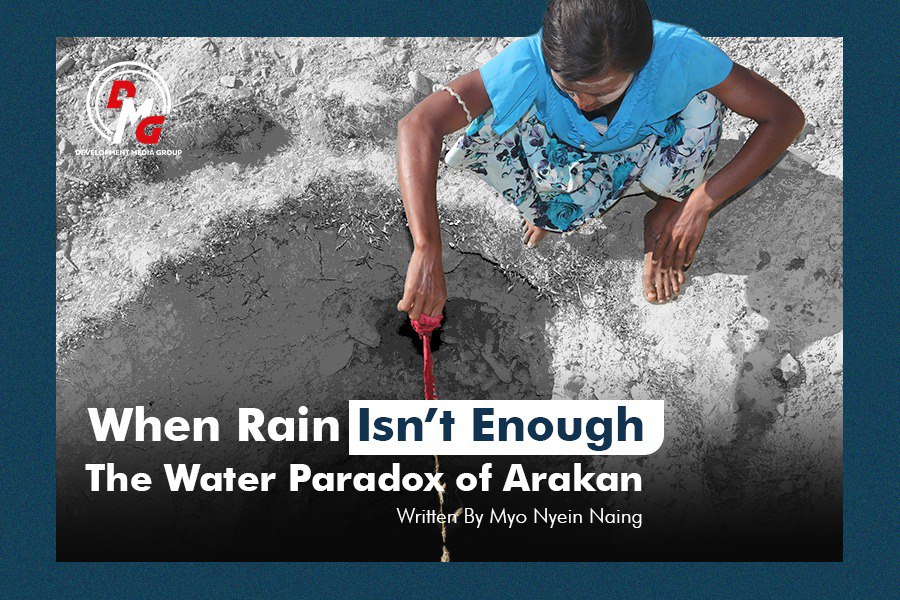ANP leader: ‘If both sides work hard, if both parties meet to find a solution, these fights will decrease’
An informal ceasefire between the Myanmar military and the Arakan Army (AA) circa November 2020, after two years of often-intense fighting between the two sides, effectively collapsed in August. In the weeks since, more than 17,000 people have been displaced by the renewed fighting in Arakan State and neighbouring Chin State’s Paletwa Township.
26 Oct 2022

DMG Newsroom
26 October 2022, Sittwe
An informal ceasefire between the Myanmar military and the Arakan Army (AA) circa November 2020, after two years of often-intense fighting between the two sides, effectively collapsed in August. In the weeks since, more than 17,000 people have been displaced by the renewed fighting in Arakan State and neighbouring Chin State’s Paletwa Township.
The total number of internally displaced people (IDPs), including those who remain at displacement camps as a result of the previous conflict, has surpassed 90,000, according to the United Nations.
Arakan National Party (ANP) chairman U Tha Tun Hla recently spoke with DMG about the political and military situation in Arakan State.
DMG: How is the ANP helping IDPs?
U Tha Tun Hla: We have recently supplied rice to displaced people in Buthidaung. And we have also provided rice supplies to displaced people in Maungdaw. And we also have plans to provide rice supplies in Kyauktaw, Rathedaung and Mrauk-U. We are providing rice supplies depending on our funds.
DMG: How did you obtain funds to supply these IDPs?
Party officials, members and supporters made contributions.
What is your view regarding the regime’s travel restrictions on local and international aid agencies supplying humanitarian assistance in northern Arakan State?
We have publicly released a statement about that. We have urged [the regime] not to block humanitarian supplies to displaced people. Not only the [military] government but also aid agencies are responsible to help with the survival and livelihoods of those innocent civilians. So, those aid agencies must be allowed as early as possible to resume their humanitarian operations. I urge [the regime] to allow it immediately, for the sake of the people who were displaced from their homes and are in serious trouble.
The ANP has begun to supply rice to displaced people while the regime is restricting humanitarian groups. Why?
Many people were displaced by the previous fighting in Arakan State. And people have been displaced again by the fresh fighting. So, we feel obliged to help them. We have also helped local people in Arakan State in the past. So, we have started doing this because we feel obliged to do so to help the displaced people, with the support from party officials, members, and supporters.
What is the ANP’s view on the current situation in Arakan State between the military and the Arakan Army?
We believe the problem that is currently happening in Myanmar is that the ethnic people in Myanmar have not had the right to national equality and self-determination since independence. This kind of grievance has arisen all over the country, and the people are suffering due to the lack of a political solution to the political problem in Myanmar. Therefore, Myanmar’s political problem needs to be discussed and resolved through a political process. When doing this, it is important for the stakeholders to work with a magnanimous attitude.
This is not based on the opinion of an organisation, but it is necessary to think and act for the people of this whole country. And the current problems in Arakan State are also because the issue of national equality and self-determination of ethnic peoples in Myanmar has not been solved by political means since the independence of Myanmar. We see these problems as a result of not finding a political solution. Regarding the Arakan issue, we believe that it is necessary to implement the process of dialogue and solution-seeking through political means.
How tense is the relationship between the military and the AA?
This is something that the armed forces of both sides will know better. We only hear about it through the media. We see that there is a situation of military tension between the military and AA in Arakan State.
How intense do you think renewed fighting in Arakan State could become?
This will depend on the efforts of the two armed forces. I believe that if both sides work hard, if both parties meet and find a solution, these fights will decrease. If the armed groups do not implement the issue of political dialogue as soon as possible without any effort, I see that not only Arakan State, but the entire country of Myanmar will have more complicated problems.
Tensions between the military and the AA are currently running high. In order to reduce that, has there been any attempt by the ANP to mediate and/or coordinate?
At the moment, the political situation in Myanmar is one in which the role of political parties is blurred. That is why it is important to encourage the political processes of political parties. In the current situation, I don’t think there is a process that encourages the processes of political parties. That’s why, as a political party, I believe that it would be very difficult to intervene in such a conflict situation in the current situation.
What should be done to stop the fighting between the Myanmar military and the AA?
Currently, the people of Arakan are suffering because of the fighting between the military and AA. We know that during the last election in 2020, there were some discussions between the Myanmar military and the AA. However, I believe that the dialogue between the military and the AA did not reach the level of solving the political problem. That’s why I think that in addition to the Arakan issue, the organisations in charge of Myanmar need to start and implement the process of solving this political problem through political means as soon as possible.
What more would you like to say?
What I want to say now is that if we view it as a political problem, we need to be willing to find a solution via political means. Because there was no desire [in the past] to find such a solution, Myanmar has had such problems since independence. I want to tell you to take that as the main lesson.




















